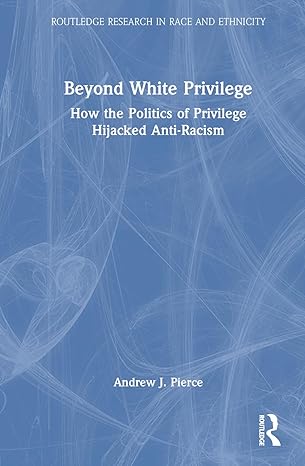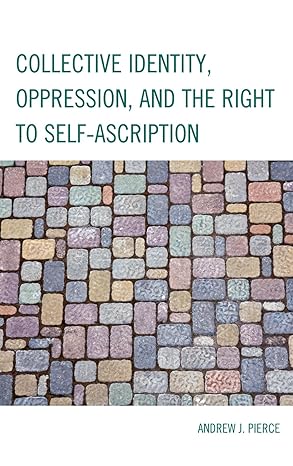
Andrew J Pierce
Born: Monroe, Michigan
Connection to Illinois: Pierce earned his PhD in philosophy from Loyola University Chicago. While living in Chicago, he also taught part-time at Loyola and the College of Lake County. Biography: Andrew Pierce is Associate Professor of Philosophy and Director of Justice Studies at Saint Mary’s College in Notre Dame, IN. He earned his Ph.D. in philosophy from Loyola University Chicago, specializing in social and political philosophy broadly conceived, with interests in critical theory and the philosophy of race. He is the author of several articles in these areas, as well as the book Collective Identity, Oppression, and the Right to Self-Ascription. Pierce was born and raised in Monroe, Michigan. Before attending Loyola University Chicago, he attended Michigan State University, where he earned a Bachelor of Arts as well as a Master of Arts, both in philosophy. While at Loyola, Andrew was elected President of the Association of Graduate Students in Philosophy, and also helped to organize two annual Brennan Graduate Student Philosophy Conferences. Andrew also received the Arthur J. Schmitt Dissertation Fellowship.
Awards:
WorldCat: http://www.worldcat.org/search?q=Andrew++J++Pierce
Selected Titles
 |
Beyond White Privilege (Routledge Research in Race and Ethnicity) ISBN: 1032609451 OCLC: 1427265749 Routledge 2024 In the world of academic anti-racism, the idea of white privilege has become the dominant paradigm for understanding racial inequality. Its roots can be traced to radical critiques of racial capitalism, however its contemporary employment tends to be class-blind, ignoring the rifts that separate educated, socially mobile elites from struggling working-class communities. How did this come to be? Beyond White Privilege traces the path by which an idea with radical potential got ‘hijacked’ by a liberal anti-racism that sees individual prejudice as racism’s primary manifestation, and white moral transformation as its appropriate remedy. This ‘politics of privilege’ proves woefully inadequate to the enduring forms of racial and economic injustice shaping the world today. For educated white elites, privilege recognition has become a ritual of purification distinguishing them from their working-class counterparts. For the white working class, whose privileges have eroded, but not disappeared, the politics of privilege often looks like class scapegoating – a process that has helped to drive increasing numbers of alienated whites into the arms of white nationalist movements. This book offers an alternative path: an ‘interest convergence’ approach that recaptures the radical potential of white privilege discourse by emphasizing converging, cross-racial interests – in education, housing, climate justice, and others – that reveal that the ‘racial bribe’ of whiteness is ultimately contrary to the interests of working-class whites. It will therefore appeal to readers across the social sciences and humanities with interests in issues of racial inequality and social justice. |
 |
Collective Identity, Oppression, and the Right to Self-Ascription ISBN: 0739171909 OCLC: 796999512 Lexington Books Lanham, Md. : 2012 Collective Identity, Oppression, and the Right to Self-Ascription argues that groups have an irreducibly collective right to determine the meaning of their shared group identity, and that such a right is especially important for historically oppressed groups. The author specifies this right by way of a modified discourse ethic, demonstrating that it can provide the foundation for a conception of identity politics that avoids many of its usual pitfalls. The focus throughout is on racial identity, which provides a test case for the theory. That is, it investigates what it would mean for racial identities to be self-ascribed rather than imposed, establishing the possible role racial identity might play in a just society. The book thus makes a unique contribution to both the field of critical theory, which has been woefully silent on issues of race, and to race theory, which often either presumes that a just society would be a raceless society, or focuses primarily on understanding existing racial inequalities, in the manner typical of so-called “non-ideal theory.” |




.jpg)